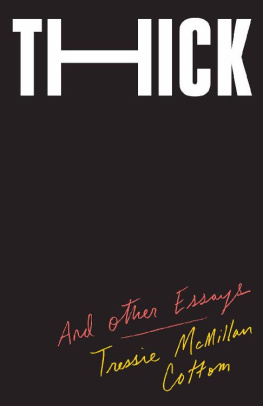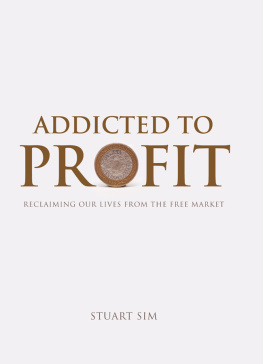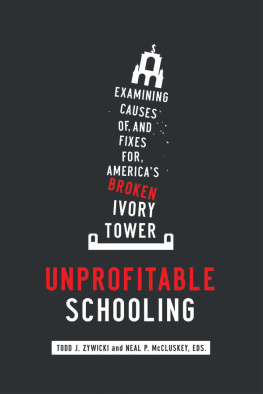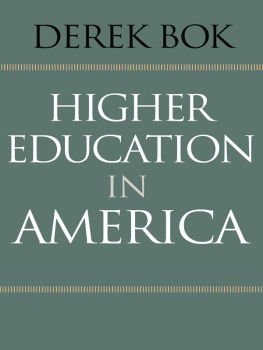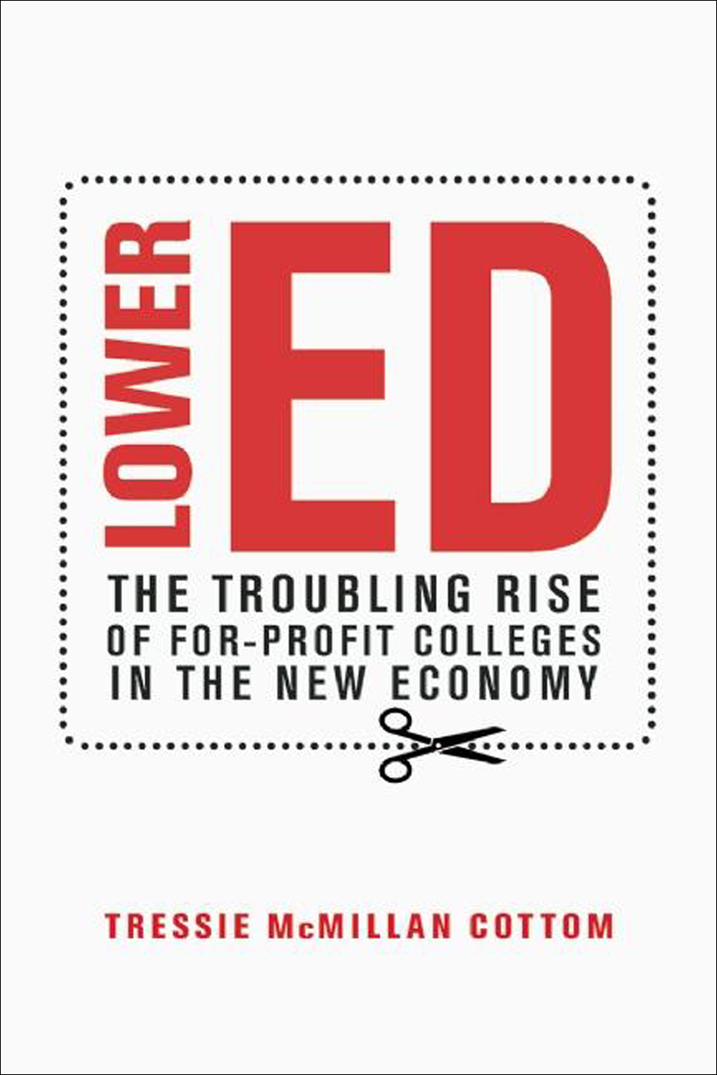Tressie McMillan Cottom - Lower Ed: The Troubling Rise of For-Profit Colleges in the New Economy
Here you can read online Tressie McMillan Cottom - Lower Ed: The Troubling Rise of For-Profit Colleges in the New Economy full text of the book (entire story) in english for free. Download pdf and epub, get meaning, cover and reviews about this ebook. year: 2017, publisher: The New Press, genre: Politics. Description of the work, (preface) as well as reviews are available. Best literature library LitArk.com created for fans of good reading and offers a wide selection of genres:
Romance novel
Science fiction
Adventure
Detective
Science
History
Home and family
Prose
Art
Politics
Computer
Non-fiction
Religion
Business
Children
Humor
Choose a favorite category and find really read worthwhile books. Enjoy immersion in the world of imagination, feel the emotions of the characters or learn something new for yourself, make an fascinating discovery.

- Book:Lower Ed: The Troubling Rise of For-Profit Colleges in the New Economy
- Author:
- Publisher:The New Press
- Genre:
- Year:2017
- Rating:3 / 5
- Favourites:Add to favourites
- Your mark:
Lower Ed: The Troubling Rise of For-Profit Colleges in the New Economy: summary, description and annotation
We offer to read an annotation, description, summary or preface (depends on what the author of the book "Lower Ed: The Troubling Rise of For-Profit Colleges in the New Economy" wrote himself). If you haven't found the necessary information about the book — write in the comments, we will try to find it.
The New York Times Book Review
More than two million students are enrolled in for-profit colleges, from the small family-run operations to the behemoths brandished on billboards, subway ads, and late-night commercials. These schools have been around just as long as their bucolic not-for-profit counterparts, yet shockingly little is known about why they have expanded so rapidly in recent yearsduring the so-called Wall Street era of for-profit colleges.
In Lower Ed Tressie McMillan Cottoma bold and rising public scholar, herself once a recruiter at two for-profit collegesexpertly parses the fraught dynamics of this big-money industry to show precisely how it is part and parcel of the growing inequality plaguing the country today. McMillan Cottom discloses the shrewd recruitment and marketing strategies that these schools deploy and explains how, despite the well-documented predatory practices of some and the campus closings of others, ending for-profit colleges wont end the vulnerabilities that made them the fastest growing sector of higher education at the turn of the twenty-first century. And she doesnt stop there.
With sharp insight and deliberate acumen, McMillan Cottom delivers a comprehensive view of postsecondary for-profit education by illuminating the experiences of the everyday people behind the shareholder earnings, congressional battles, and student debt disasters. The relatable human stories in Lower Edfrom mothers struggling to pay for beauty school to working class guys seeking good jobs to accomplished professionals pursuing doctoral degreesillustrate that the growth of for-profit colleges is inextricably linked to larger questions of race, gender, work, and the promise of opportunity in America.
Drawing on more than one hundred interviews with students, employees, executives, and activists, Lower Ed tells the story of the benefits, pitfalls, and real costs of a for-profit education. It is a story about broken social contracts; about education transforming from a public interest to a private gain; and about all Americans and the challenges we face in our divided, unequal society.
Tressie McMillan Cottom: author's other books
Who wrote Lower Ed: The Troubling Rise of For-Profit Colleges in the New Economy? Find out the surname, the name of the author of the book and a list of all author's works by series.

